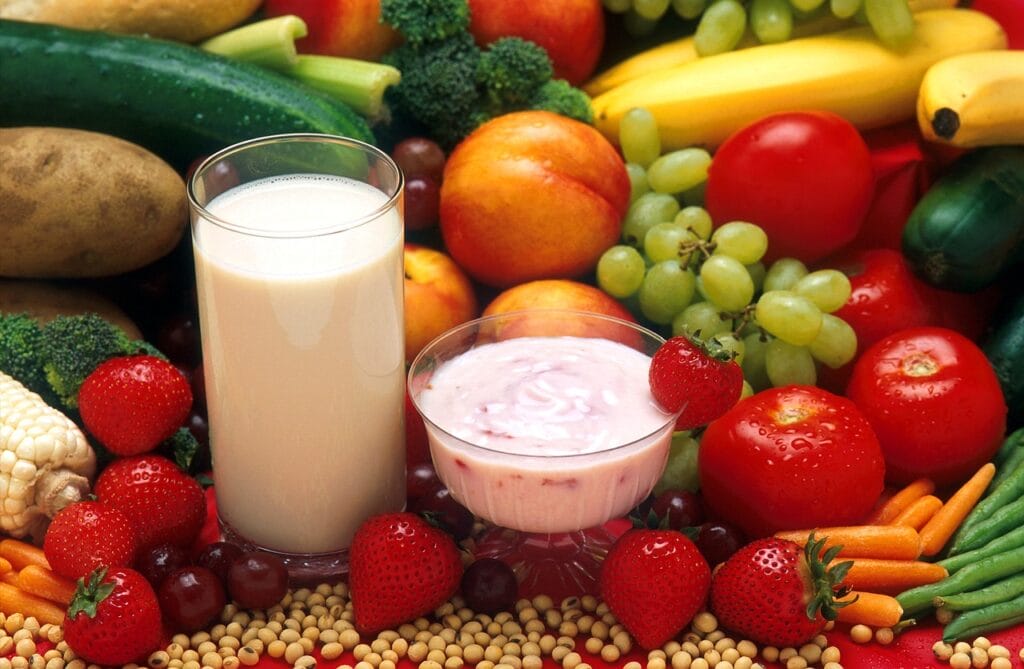Cheap and Healthy Food Options
https://paradisehealthtips.com/
In an era where health consciousness is on the rise, many individuals find themselves grappling with the dual challenges of maintaining a balanced diet while sticking to a budget. The perception that healthy food is synonymous with high prices is a barrier that prevents many from pursuing better nutrition. However, with a little planning, knowledge, and creativity, the idea of cheap and healthy food is not just a myth but an achievable reality. This blog post aims to explore strategies for incorporating nutritious foods into your diet without breaking the bank while highlighting some practical cost-effective food options.
Understanding the Nutritional Landscape

To begin our exploration, it is essential to recognize the components that make food both healthy and affordable. Nutritional density should be at the forefront of this conversation. Nutrient-dense foods provide a high ratio of vitamins, minerals, and other beneficial compounds relative to their calorie content. They are often whole foods, such as fruits, vegetables, legumes, whole grains, lean proteins, and healthy fats, that can be obtained at a fraction of the cost of processed foods without sacrificing health benefits.
The Myths of Healthy Eating
Before we delve into practical solutions, it is essential to address some common myths surrounding cheap and healthy food:
- Healthy Food is Always Expensive: Many staple foods, such as beans, lentils, rice, and seasonal fruits and vegetables, are often very affordable.
- Convenience Equals Cost: Pre-packaged health foods can be pricey, but with a little preparation and planning, home-cooked meals can be both convenient and cost-effective.
- Healthy Eating Takes Too Much Time: While some meal prep is necessary when opting for healthy options, quick, nutritious meals can often be prepared in 30 minutes or less.
Strategies for Accessing Cheap and Healthy Food

Embrace Whole Foods
Whole foods, which are unprocessed or minimally processed, offer a treasure trove of nutrients at affordable prices. Consider incorporating foods such as:
Legumes: Beans, lentils, and chickpeas are excellent sources of protein, fiber, iron, and other vital nutrients. They can be bought in bulk at a low cost and used in various dishes soups, salads, and stews.
Grains: Whole grains such as brown rice, quinoa, and oats provide dietary fiber and energy. They are generally inexpensive, especially when purchased in bulk.
Frozen Produce: Frozen fruits and vegetables often retain their nutritional value and are less expensive than fresh produce particularly out-of-season fruits and veggies. They are convenient options for smoothies, soups, and stir-fries.
Plan and Prepare Meals

https://gohar6129.blogspot.com/
Meal planning is one of the most effective strategies for maintaining a healthy diet while keeping food costs down. Here’s how to strategize your meals:
Weekly Planning: Dedicate some time each week to plan your meals based on what’s in season, what’s on sale, and what you already have at home.
Batch Cooking: Preparing large quantities of food in advance can save both time and money. Cook a big batch of grains or vegetables at the start of the week and use them in various recipes.
Simple Recipes: Look for recipes that use fewer, cheaper ingredients rather than complicated ones with numerous components. Simple fare can often be both delicious and satisfying.
Shop Smart

The way you shop significantly impacts your food budget. Here are some tips for shopping smart:
Make a List: Go grocery shopping with a list based on your meal plan. This helps avoid impulse buys, which can add up quickly, often leading to purchasing unhealthy snacks or items that aren’t budget-friendly.
Use Coupons and Discounts: Take advantage of store loyalty programs and coupons. Many supermarkets offer discounts on items that are nearing their expiration dates, which can lead to significant savings.
Shop Seasonally and Locally: Fruits and vegetables are typically cheaper when they are in season. Visiting local farmers’ markets can provide you with fresh produce at lower prices than large grocery chains.
Think Plant-Based
A shift towards more plant-based meals can also be financially beneficial. Incorporating more fruits, vegetables, grains, and legumes while reducing your intake of expensive meats can help save money:
Meatless Meals: Introduce meatless Mondays or other days in the week where the focus shifts to vegetarian options. Dishes like stir-fried vegetables with tofu, lentil soups, or vegetable curries can be wholesome and low-cost.
Alternative Proteins: When you do choose to include meat, consider less expensive cuts of meat such as chicken thighs instead of breasts or ground meats that can be stretched with beans in recipes.
Prioritize Cooking Skills
Cooking skills play a vital role in successfully eating cheap and healthy food. Improving your culinary skills even if just a little can yield significant benefits in the kitchen:
Basic Skills: Master essential cooking techniques such as chopping, boiling, roasting, and sautéing. Knowing how to prepare various foods allows you to create wholesome dishes from basic ingredients.
Experimentation: Don’t be afraid to experiment with flavors and ingredients. Using diverse spices can make simple ingredients exciting without requiring expensive additives.
Conclusion
Navigating the world of cheap and healthy food does not have to be an insurmountable challenge. By embracing a thoughtful approach to meal planning, shopping, and cooking, it is indeed possible to satisfy both nutritional needs and financial constraints. The benefits of consuming nutrient-dense foods extend beyond physical health; they can improve mental well-being and contribute to an overall healthier lifestyle.
By prioritizing whole foods, staying informed about budget-friendly options, and honing your culinary skills, you can transform your diet without sacrificing flavor or breaking the bank. With a proactive and informed approach, cheap and healthy food becomes not only attainable but also enjoyable, enriching your life in countless ways. Embrace this journey toward a healthier life today and remember: nutritious eating doesn’t have to be costly.
Read More:

